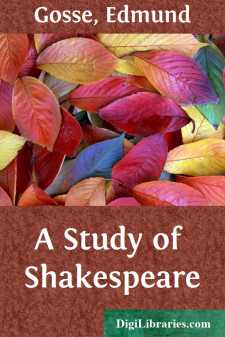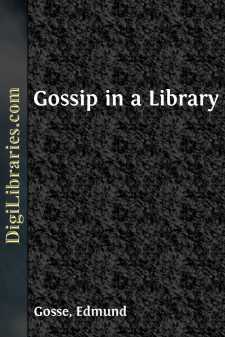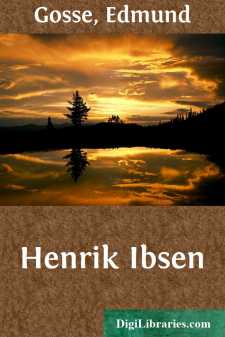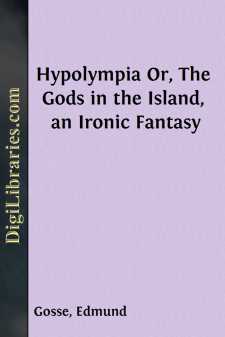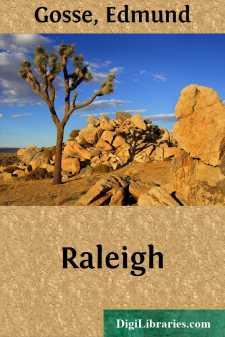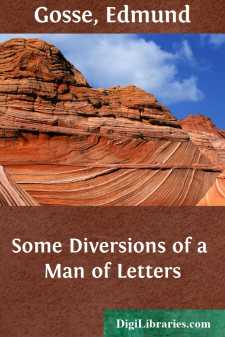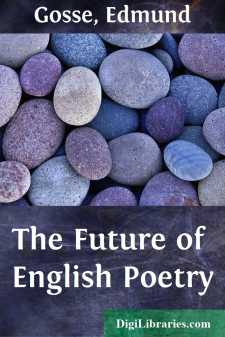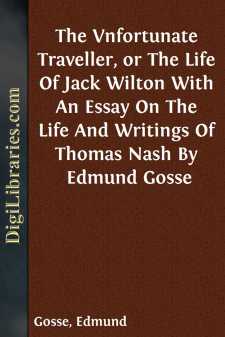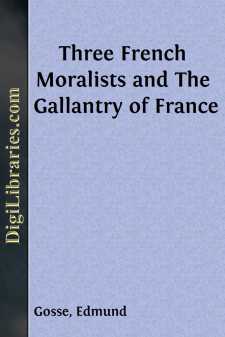Categories
- Antiques & Collectibles 13
- Architecture 36
- Art 48
- Bibles 22
- Biography & Autobiography 813
- Body, Mind & Spirit 142
- Business & Economics 28
- Children's Books 14
- Children's Fiction 11
- Computers 4
- Cooking 94
- Crafts & Hobbies 4
- Drama 346
- Education 46
- Family & Relationships 57
- Fiction 11829
- Games 19
- Gardening 17
- Health & Fitness 34
- History 1377
- House & Home 1
- Humor 147
- Juvenile Fiction 1873
- Juvenile Nonfiction 202
- Language Arts & Disciplines 88
- Law 16
- Literary Collections 686
- Literary Criticism 179
- Mathematics 13
- Medical 41
- Music 40
- Nature 179
- Non-Classifiable 1768
- Performing Arts 7
- Periodicals 1453
- Philosophy 64
- Photography 2
- Poetry 896
- Political Science 203
- Psychology 42
- Reference 154
- Religion 513
- Science 126
- Self-Help 84
- Social Science 81
- Sports & Recreation 34
- Study Aids 3
- Technology & Engineering 59
- Transportation 23
- Travel 463
- True Crime 29
Edmund Gosse
Edmund Gosse (1849-1928) was an influential English writer, poet, and critic, known for his contributions to literary history and biography. His most notable work, "Father and Son" (1907), is an autobiographical memoir that explores his relationship with his father, Philip Henry Gosse, and the conflict between his religious upbringing and his developing artistic sensibilities. Gosse also played a crucial role in introducing Scandinavian literature to English readers and was a prominent figure in the late 19th and early 20th-century literary circles.
Author's Books:
Sort by:
by:
Edmund Gosse
I. The greatest poet of our age has drawn a parallel of elaborate eloquence between Shakespeare and the sea; and the likeness holds good in many points of less significance than those which have been set down by the master-hand. For two hundred years at least have students of every kind put forth in every sort of boat on a longer or a shorter voyage of research across the waters of that unsounded...
more...
by:
Edmund Gosse
CAMDEN'S "BRITANNIA" BRITAIN: or a chorographical description of the most flourishingKingdomes, England, Scotland and Ireland, and the Ilands adioyning;out of the depth of Antiquitie: beautified with Mappes of the severallShires of England; Written first in Latine by William Camden,Clarenceux K. of A. Translated newly into English by Philémon Holland.Londini, Impensis Georgii Bishop &...
more...
by:
Edmund Gosse
CHAPTER I CHILDHOOD AND YOUTH The parentage of the poet has been traced back to a certain Danish skipper, Peter Ibsen, who, in the beginning of the eighteenth century, made his way over from Stege, the capital of the island of Möen, and became a citizen of Bergen. From that time forth the men of the family, all following the sea in their youth, jovial men of a humorous disposition, continued to haunt...
more...
by:
Edmund Gosse
A terrace high above the sea, which is seen far below, through vast masses of woodland. Steps lead down towards the water, from the centre of the scene. To the left, a large, low country-house, of unpretentious character, in the style of the late eighteenth century. Gardens belonging to the same period, and now somewhat neglected and overgrown, stretch on either side. The edge of the terrace is marked...
more...
by:
Edmund Gosse
CHAPTER I. YOUTH. Walter Raleigh was born, so Camden and an anonymous astrologer combine to assure us, in 1552. The place was Hayes Barton, a farmstead in the parish of East Budleigh, in Devonshire, then belonging to his father; it passed out of the family, and in 1584 Sir Walter attempted to buy it back. 'For the natural disposition I have to the place, being born in that house, I had rather seat...
more...
by:
Edmund Gosse
PREFACE: ON FLUCTUATIONS OF TASTE When Voltaire sat down to write a book on Epic Poetry, he dedicated his first chapter to "Differences of Taste in Nations." A critic of to-day might well find it necessary, on the threshold of a general inquiry, to expatiate on "Differences of Taste in Generations." Changes of standard in the arts are always taking place, but it is only with advancing...
more...
by:
Edmund Gosse
THE FUTURE OF ENGLISH POETRYJ’ai vu le cheval rose ouvrir ses ailes d’or,Et, flairant le laurier que je tenais encor,Verdoyant à jamais, hier comme aujourd’hui,Se cabrer vers le Jour et ruer vers la Nuit.Henri de Régnier.In venturing this afternoon to address an audience accustomed to listen to those whose positive authority is universally recognized, and in taking for my theme a subject not,...
more...
by:
Edmund Gosse
AN ESSAY ON THE LIFE AND WRITINGS OF THOMAS NASH. It is mainly, no doubt, but I hope not exclusively, an antiquarian interest which attaches to the name of Thomas Nash. It would be absurd to claim for a writer so obscure a very prominent place in the procession of Englishmen of letters. His works proclaim by their extreme rarity the fact that three centuries of readers have existed cheerfully and...
more...
by:
Edmund Gosse
INTRODUCTION The object of these essays is to trace back to its source, or to some of its sources—for the soul of France is far too complex to be measured by one system—the spirit of gallantry which inspired the young French officers at the beginning of the war. We cannot examine too minutely, or with too reverent an enthusiasm, the effort of our great ally, and in this theme for our admiration...
more...


